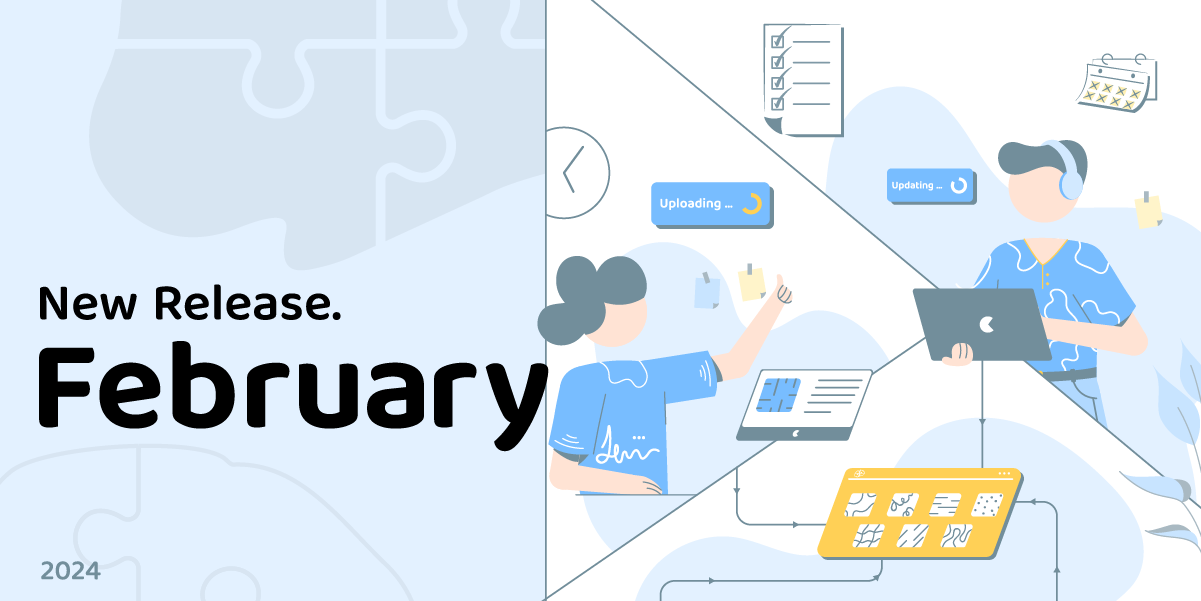✨Avicenna February Update: Introducing new features for Surveys

Hello Avicenna Community,
Another month has gone by, and we're still working hard to make our platform better for your research. Thanks to your feedback, we fixed some important issues to make everything run more smoothly. Also, we added two new features to help you with your research and keep things easily accessible.
🌟 Introducing Researcher-Responded Surveys
This month, we're introducing the Researcher-Responded Surveys. This feature lets the researchers have more control over managing survey sessions enabling researcher-centric studies.
This feature allows researchers to make changes to existing survey responses and even delete sessions from the past. They can also create survey sessions that participants can't directly access. In these cases, the researcher's responses to those sessions might still affect the participant's participation through criteria or survey question content placeholders.
For comprehensive details, see our guides on Researcher-responded TL, Editing Survey Responses, and Deleting a Session.
🌟 Introducing Survey Responses History
As a complementary feature to the Researcher-Responded Survey, we also introduced Survey Responses History.
Now, researchers can easily keep track of any changes made to survey responses, complete with details on who made the change and when. It’s a step forward in ensuring transparency and accountability. The history is accessible on the Activity Responses page (when viewing responses) and the Activity Sessions page (when editing the responses).
For comprehensive details, see our guide on Viewing Survey Response History.
🚀 User Experience Improvements
- Comprehensive Chinese Language Support:
Our platform now fully supports the Chinese language inside all of our participant apps. This includes both user interface changes and the ability to translate study protocols, ensuring a smooth and consistent experience for Chinese-speaking users. - Enhanced Barcode Scanning Capability in Mobile Apps:
Our mobile apps have been enhanced to include built-in barcode scanning capabilities, specifically for QR codes and barcodes. This update eliminates the need for third-party scanning apps and improves compatibility and efficiency across participant devices. - Fixed Survey ID Display in Criteria Editor:
We addressed an issue where the criteria editor incorrectly displayed the survey ID, causing confusion during survey editing. Previously, when editing the criteria for a question, the header and question selection dropdown showed incorrect survey IDs. This has been corrected to ensure that the editor accurately displays the current survey ID for the question being edited, thereby improving accuracy and user confidence during the survey customization process. - Notification Zulu Translation Saving Issue
Resolved an issue where attempting to save Zulu translations for Notification Templates was unsuccessful. - Study Background Image Not Updating
Fixed an issue where changing the study background did not update the image on the Basics page immediately after successfully uploading a valid file. - Localized Version Not Displayed on Participant Web App
Addressed a problem where the localized version of the survey was not displayed on the participant web app when the related language was set as the preferred language in app settings. - Rebranding - Part 2:
As part of our ongoing Rebranding Roadmap, we renamed our apps from “Ethica (Avicenna)” to “Avicenna (Ethica)”. Following this change, participants will still be able to find our app by looking for “Ethica”, although the name “Avicenna” will be more prominent. - Triggering Logic Type Presentation Issue:
Triggering logic types have been presented using numbers in the Activity Responses page of the researcher dashboard, leading to confusion. To improve clarity, we’ve resolved these issues, ensuring human-readable triggering logic types. - Study List Persistence After Update Interruption:
Interruptions (e.g. app being closed) during iOS study updates caused the previous study list to disappear, creating an empty list until the next successful update. To address this, we’ve fixed the bug, ensuring the previous study list remains available after an interrupted update on the iOS app.
🔍 Reflecting on the Impact
Your experience with Avicenna is crucial to our growth. Each update aims to streamline your research, focusing on usability and efficiency. We strive to support your research effectively.
📣 We Value Your Feedback – And Your Stories
Have the updates improved your research? We encourage sharing your experiences on our Community Forum or via email. Your feedback helps shape our future updates and motivates the Avicenna community.
🌟 What's Next?
We remain dedicated to improving Avicenna. New features are in the pipeline, aiming to further enhance your research workflow.
Let's keep pushing the boundaries of research together with Avicenna.
